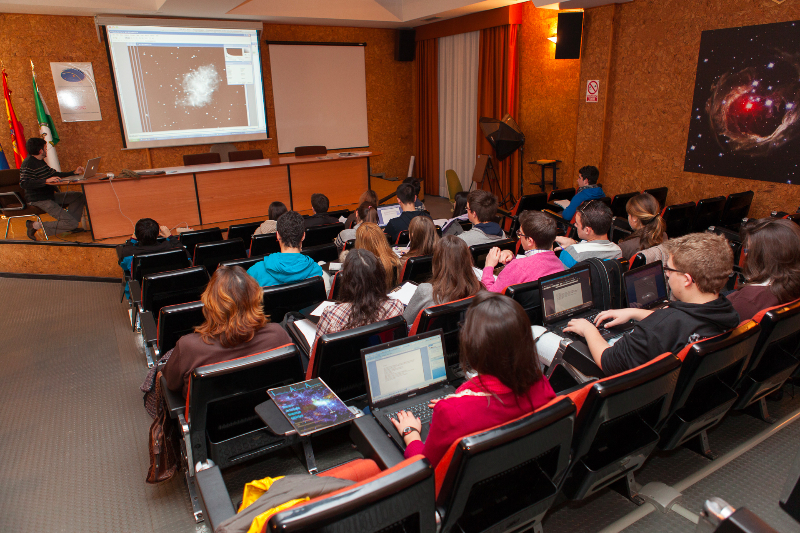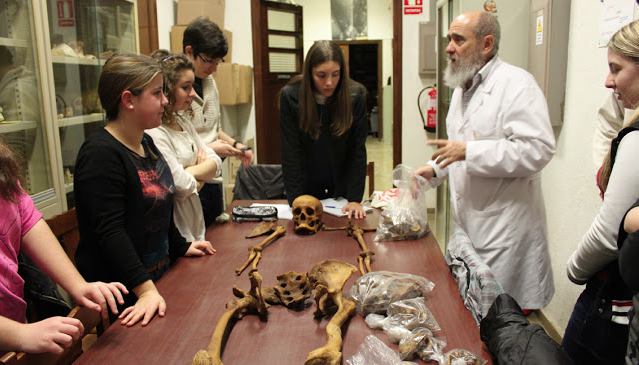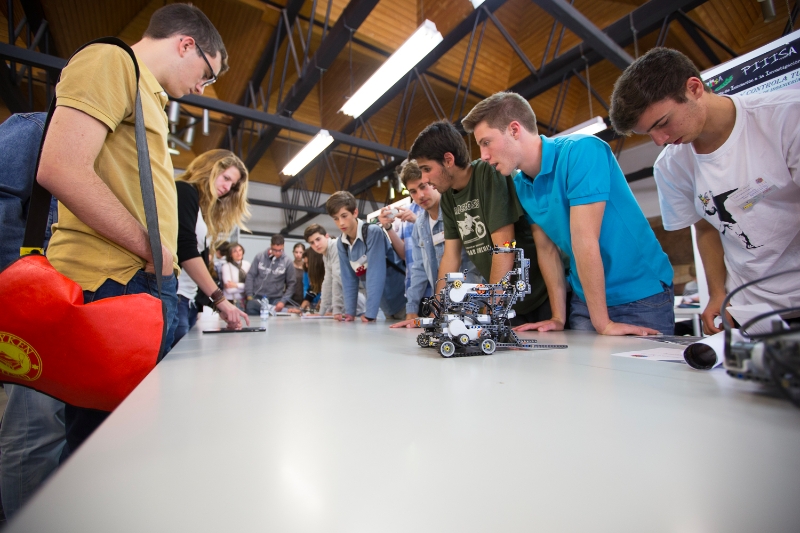The Institute of Astrophysics of Andalusia (IAA-CSIC) will participate in the fourth year of the Project to Introduce Research and Innovation into Secondary Schools in Granada (PIIISA 2014)
The fourth year of this initiative, launched by IAA-CSIC and aimed at introducing secondary school students to the scientific method, begins tomorrow
The fourth year of this initiative, launched by IAA-CSIC and aimed at introducing secondary school students to the scientific method, begins tomorrow
Over four hundred 10th and 12th grade students and thirty teachers from thirty different secondary schools in Granada city and Granada state will take part in the Project to Introduce Research and Innovation to Secondary Schools in Granada--PIIISA 2014 (www.piiisa.es).
PIISA seeks to familiarize youngsters with the research going on in Granadan institutions. Students will get an opportunity to get involved in projects and find out first hand what the scientific method consists in, what research is like and why science is relevant to economic and social development.

The project was the result of a close collaboration between the Education Committee of the Andalusian Council in Granada, the Spanish National Research Council (CSIC) and the University of Granada (UGR). This year all five CSIC centres in Granada will take part in PIISA: the Institute of Astrophysics of Andalucía (IAA), the Experimental Station of Zaidín (EEZ), the Andalusian Institute of Earth Sciences (IACT, CSIC-UGR), the López-Neyra Institute of Parasitology and Biomedicine (IPBLN) and the School of Arabic Studies (EEA). The University of Granada (UGR) will be represented by various affiliated faculties and centres: the Faculty of Medicine, Pfizer-University of Granada-Granada Council Centre for Genomics and Ontological Research (GENYO), the Faculty of Pharmacy, the Higher Technical School of Computer Sciences and Engineering, the Faculty of Science, the Faculty of Economic and Business Sciences, the Faculty of Law, the Faculty of Translation and Interpreting, and the Faculty of Philosophy and Literature.
MULTIDISCIPLINARY APPROACH
Students were invited to choose from sixty different projects in various fields of research (genetics, astrophysics, agriculture, chemistry, law, translation, social and economic sciences, etc.). They will work in teams inside each project, monitored by UGR and CSIC researchers, using real data and state of the art instruments and methodologies. At the end, they will present their results and conclusions--like researchers actually do--to a general congress scheduled in May of this year.

“One of the keys to promoting motivation, vocation and talent in young people is to confront them with educational challenges that b high stakes, inside and outside the classroom. PIIISA is excellent proof that this educational philosophy is really effective”, says Javier Cáceres, director and didactic coordinator of the educational project.
FOURTH YEAR
During the third year, sponsored by the Spanish Foundation for Science and Technology (FECYT) and the Office of Social Outreach of La Caixa, students successfully carried out all kinds of investigations, from DNA identification of bacteria to characterizing exoplanets, from studies of women translators in the 18th century to robotics, the environment, etc.
Some of these projects have been selected and awarded prizes in different contests. Born in Granada, this educational project is currently spreading to other provinces and communities, and has been successfully launched in the autonomous community of Murcia.

Javier Cáceres, caceres@iaa.es, 638528130
